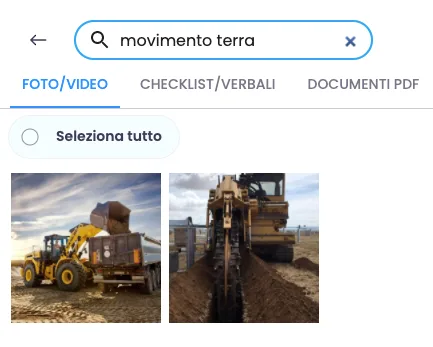Artificial Intelligence: examples applied to the construction industry
Mela Academy
Examples of Artificial Intelligence from the construction industry. Let's look at possible current applications using one example: the construction management app Mela Works. We will also look at a real estate business model – PropTech – that joins new technologies and digital tools to calculate the price.

Inteligencia artificial: ejemplos
Artificial Intelligence (AI) is a technology that allows machines to conduct logic-based reasoning and complex operations, powering the ability to solve problems and make human-like decisions.
When it comes to the construction industry, we will focus specifically on the following abilities:
- The ability to analyse images similarly to how a human observer would
- Understanding the language regularly used in communications or documents
- The ability to analyse complex data systems that do not have any obvious correlation

Artificial Intelligence and machine learning: how is it different from traditional software?
Unlike traditional software, an AI system is not based on predetermined algorithms created by the original programmer, who must therefore know how to solve the software's problems in the future. Instead, it uses learning techniques – or machine learning – which allow the computer to teach itself (with almost no outside intervention). Machine learning uses algorithms that analyse large amounts of data and then develop its comprehension and reasoning skills.
In addition to all the major corporations worldwide, in Italy, many industries are now starting to use AI technology. That being said, we have little doubt that the use of AI will develop exponentially over the next few years.
Let's keep in mind that the basic technology is now mature, accessible, and available thanks to cloud services.
According to data provided by the Observatory of Milan's Polytechnic University in 2021, AI technology in Italy is used mainly in the banking and finance sector (23% of the market), followed by utilities (14%), manufacturing (13%) and insurance (11%).
When it comes to the construction industry, things are different. If we had to take an X-ray of our sector, nowadays artificial Intelligence is practically unknown. According to a study done by McKinsey, construction represents one of the least digitised industries, and it is among the slowest to adopt new technologies around the world. Artificial Intelligence is no exception.
From these premises, we can quickly see how AI is not really considered a practical tool that can be used at the construction site. As a result, both providers and users fail to promote it. The only exceptions consist of very innovative players that have spotted its potential and apply it on-site daily. Let's take a look at one example.
A current example of Artificial Intelligence use


Mela
This app uses Artificial Intelligence to analyse and search pictures and photographs, creating an agile and permanently accessible construction site repository.
A great example that showcases the potential of AI can be seen in the Mela construction site management app. It has developed an AI-powered system that permits users to find any information they have inputted quickly, no matter which part of the app they are stored in. This is especially noticeable when searching pictures.
But that's not all. If there is anything written on the photographs, the AI can read the text and attach the information to the picture.
Let's look at a practical example. Suppose I use Mela to snap a picture of shipping documents. In that case, the system will automatically label the photo as a document, and it will read all the information contained in the picture. Then, if I ask Mela to provide me with all the information related to a specific supplier or an order number, the app will also show me the picture we mentioned.
Mela will soon be able to extract the list of items mentioned in the photo of the waybill and import it directly as an accounting item, all powered by AI.
Artificial Intelligence in the real estate market: What's PropTech?
Within the construction site, Artificial Intelligence remains almost non-existent beyond the occasional visionary. On the other hand, AI technology has now risen to critical importance in the construction industry, thanks to PropTech. The name of this business model joins the words property and technology, just like it merges new technologies and digital tools to calculate real estate prices. The goal of PropTech is to make the real estate market more efficient – from the moment you begin planning the entire life cycle of a property – while reducing the market-based risks.
How does PropTech use Artificial Intelligence?
As we have already seen, PropTech can use AI technology throughout a building's entire life cycle, from the designs stages to the construction management and post-sale upkeep. However, its more concrete applications fall within two sectors: analysing the real estate market and examining a building's status (and need for maintenance). There also seems to be an exciting potential when exploring the people's paths, as it opens the possibility to understand better the relationship between people and the spaces they occupy.
What are the advantages of Artificial Intelligence within the sector? A survey
According to a survey published by Drooms, The future of Artificial Intelligence in real estate transactions AI is valued for its ability to:
- Improve process efficiency (for 75% of participants)
- Save time usually spent manually revising information (chosen by 69%)
- Prevent or avoid human errors (for 53%)
- Automatically create contracts and reports (for 36% of participants)
- Assist with decision making for data-driven operations (for 16%)
The greatest goal of AI is finding patterns and analysing data, even in the real estate industry. To accomplish this, you need to start from a large amount of data, which is then fed to algorithms that will find correlations within the real estate market.